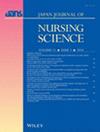The process of becoming independent while balancing health management and social life in adolescent and young adult childhood cancer survivors
Abstract
Aim
This study aimed to elucidate the process of how adolescent and young adult childhood cancer survivors (CCSs) become independent while balancing health management and social life with a view to providing long-term support.
Methods
Semi-structured interviews were conducted with 22 Japanese CCSs aged 16–25 years. The data were then qualitatively analysed using the modified grounded theory approach.
Results
Seven “categories” and 35 “concepts” were generated. The connections among these categories and concepts revealed the process of becoming independent while balancing health management and social life. The first phase in the process is “coordination within constraints,” which includes “consciousness and worries about deteriorating health” and “adjustments to balance schoolwork and treatment.” This phase changes into “challenges to being free and normal” and “release from constraints.” Psychological development then occurs as “gratitude toward surrounding people” and “sustenance from experiencing a rare illness.” However, CCSs also “face worries about the persistent effects of cancer,” including “awareness of the necessity to continue hospital visits even into adulthood.” Through these experiences, CCSs reach the phase of “finding a way to live with oneself,” which integrates health management with social life.
Conclusions
These findings may help parents and health, education, and social-care professionals anticipate and share changes in CCSs physical condition, daily life, and psychosocial development. CCSs need support in terms of coordinating cancer therapy and school life, trying what they want to do, self-managing their own health condition, and forming their identity, including making sense of their illness experience.

 求助内容:
求助内容: 应助结果提醒方式:
应助结果提醒方式:


